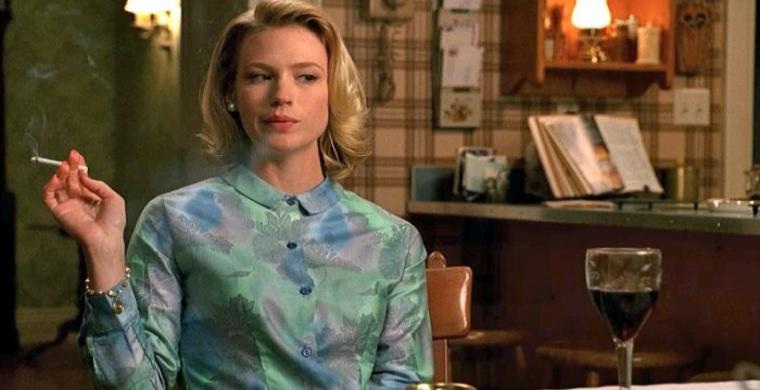Pete Buttigieg, Erick Erickson, and Trending #Episcopalians
By Jeff Walton
https://juicyecumenism.com/2019/04/10/trending-episcopalians/
April 10, 2019
Do Episcopalians have only a superficial understanding of Christianity? Resurgent blogger Erick Erickson suggested as much this week, commenting on Dark Horse Democratic Presidential Candidate Pete Buttigieg's Meet the Press appearance, in which the South Bend, Indiana mayor expressed frustration at Evangelical support for the President.
ERICK ERICKSON @EWERickson: I get this. I truly do. But this is an argument for evangelicals pulling out of politics, not for persuading them to support someone who is openly gay, doesn't think it is a sin, and supports abortion rights.
ERICK ERICKSON @EWErickson: I mean if Buttigieg thinks evangelicals should be supporting him instead of Trump, he fundamentally does not understand the roots of Christianity. But then he is an Episcopalian, so he might not actually understand Christianity more than superficially.
Cue the outrage, as progressive twitteratti (many of whom identifying as Atheist on their accounts) expressed indignation at Erickson's diss of Episcopalians: "Your imaginary sky-daddy is absurd, how dare you question another delusional group's devotion to the same imaginary sky-daddy?!"
The irony is that Erickson -- an Evangelical in the Reformed tradition -- was capable of prompting "Episcopalians" to trend on Twitter. This is something that even social media savvy Episcopalians, such as liberal post-Evangelical Rachel Held Evans, have been unable to achieve. It is also important to note that Erickson wasn't attacking Anglican theology (he's spoken favorably of the Anglican Church in North America, for example).
In a favorite tweet, Vogue writer Bridget Read shared a photo of icy blonde Betty Draper of "Mad Men" -- cigarette in hand and glass of wine on the table -- casually exhaling smoke in her fictional 1960s Westchester County kitchen with the caption "when 'Episcopalians' is trending".
Perhaps the image could be improved if the wine was exchanged for a gin-based cocktail. But it works not just because the show's time period was the apex of Episcopal Church membership, when WASPy housewives regularly delivered husbands and children into the pews, but also for how some Episcopalians perceive themselves today: cool, detached, unfazed by unsightly passions of perhaps more vigorous expressions of the Christian faith.
As annual release of Episcopal Church statistics has charted for decades, the real housewives of suburban Westchester have ceased to pass through the red Episcopal parish doors each Sunday. Perhaps, as one liberal clergyman tweeted, Catholics tired of "monarchy" and Evangelicals rejecting puritanism will always provide a stream of people into the Episcopal denomination (Buttigieg himself was Catholic-educated, eventually finding a home among the spiritually like-minded at South Bend's Episcopal cathedral, where he and his partner were joined in a same-sex marriage rite). But it also illustrates a problem: Episcopalians have largely ceased evangelizing the unreached, instead content to be a boutique church for a subset of urban, upper class elites. Much of the mission field has been vacated. Besides, data from the Cooperative Congressional Election Study reveals how few Catholics and Protestants have changed affiliations.
Erickson's "superficial understanding" diss has truth in it: contemporary Episcopalians may still hold to outward religious practices, but there has -- for some time -- been a lack of understanding among the laity about the theology that is supposed to under-gird those practices.
At the beginning of the Lenten season, Episcopal clergy now position themselves along transit stations offering "ashes to go": a visible mark on the forehead but divorced from either the liturgical context of confession and repentance that Anglo-Catholic Episcopalians stewarded, or from the gospel proclamation that evangelical Episcopalians emphasized. A smaller subset offer "glitter ash" -- the ashes meant to symbolize impermanence and solemn repentance transformed to communicate an ideological message fit for the current political and cultural moment.
Perhaps just as telling is a glance at the state of the Episcopal Church. This week the Buffalo News reports that, rather than electing a new bishop, the cash-strapped and rapidly shrinking Episcopal Diocese of Western New York will provisionally share a bishop with the neighboring and hemorrhaging Diocese of Northwestern Pennsylvania. As the denomination's existing members fail to evangelize nor to procreate, this limits the number of new members. The number of marriages taking place in the denomination has collapsed nearly 60 percent in the past 15 years, while baptisms dropped 55 percent (adult baptisms, which can serve as an indicator of evangelistic activity, are down 53 percent).
Does this offer a point of evidence to Erickson's twitter claim that Episcopalians are failing to impart more than a superficial understanding of faith to their congregants? Maybe. But one thing is for certain, fewer Episcopal children are showing up for spiritual education, regardless of the quality of that education. In Buttigieg's own Diocese of Northern Indiana (which was considered among the more traditional in the church until 2016) the number of church school pupils dropped 28 percent from 2007--2017, while Sunday attendance dropped 19 percent during the same time period.
Superficial understanding of Christianity isn't limited to contemporary Episcopalians. But a church that no longer clings to gracious hope and instead sits self-satisfied with "our people" -- whomever that is perceived to be -- is unable to understand what motivates others, let alone change culture. Erickson seems to understand this, and Episcopalians would be right to demand something deeper than drive-by ashes.
END














